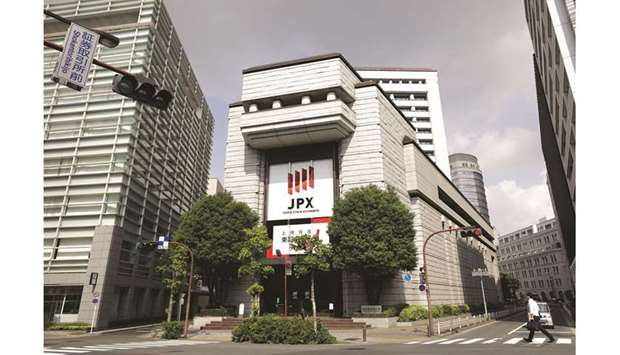Asian markets edged up yesterday as investors turn their attention to the China-US trade talks, while keeping an eye on the Gulf region after last week’s air strikes on Saudi oil facilities fanned geopolitical tensions.
With a delegation from China in the US to prepare for higher-level negotiations next month, there are hopes the economic powerhouses can find a solution to their tariffs row that has dragged on the global economy for a year.
Stock markets have enjoyed a broadly positive September thanks to hopes for the talks, with both sides appearing to offer olive branches and sounding less confrontational than they did in July and August.
A shift by central banks to easier monetary policies — or a desire to do so — is providing some much-needed support to equities, though there was some disappointment in the Federal Reserve’s lack of forward guidance this week for further interest rate cuts.
Still, there is an expectation that more measures were likely on the way, with Kate Warne, investment strategist at Edward Jones, telling Bloomberg TV: “There’s a lot more monetary stimulus coming into the system.”
Hong Kong was down 0.1% marking a fifth straight loss, with investors on alert for further protests in the city following clashes between pro-democracy demonstrators and police last weekend.
Shanghai ended up 0.2% and Tokyo closed 0.2% higher.
Mumbai soared more than 5% after the government said it would slash corporate taxes from 30% to 22% in an effort to boost the sagging economy.
Finance Minister Nirmala Sitharaman said the new rates would be “comparable with the lowest tax rates in South Asian region and in Southeast Asia”.
Sydney gained 0.2% as investors grow optimistic the Australian central bank will cut interest rates again at its next policy meeting, while Seoul rose 0.5% and Taipei added 0.3%.
Singapore edged up 0.1% and Wellington put on 0.3%. However, traders are on edge in case of further attacks on Saudi Arabia at the weekend following the devastating strikes that crippled two of its biggest oil plants on Saturday and sent the price of crude soaring.
Both main contracts stabilised this week after the initial shock but there are worries of a possible conflict after the US and Saudi Arabia pointed the finger at Iran and said they were considering their response.
Adding to concerns, Iran’s Foreign Minister Mohammad Javad Zarif warned on Thursday that any military strike on the country could lead to “all-out war”.
“It is hard to see oil markets wanting to sell crude heavily ahead of the weekend and the event risk that entails,” said Jeffrey Halley, senior markets analyst at OANDA.
“In fact, that would be a very dangerous game as the threat of more attacks from Iran or its proxies have, if anything, increased, not decreased given the enfeebled global response this week.”
On currency markets, the pound resumed its upward move after European Commission President Jean-Claude Juncker said he thought a Brexit deal could be reached if Prime Minister Boris Johnson could come up with a viable alternative to the “Irish backstop” that has held up talks.
“This presents a significant shift of position by the commission which until recently had refused point blank any prospect that the withdrawal agreement could be changed,” said Michael Hewson, chief market analyst at CMC Markets UK.
In early trade London fell 0.3%, while Paris and Frankfurt were flat.
In Tokyo, the Nikkei 225 closed up 0.2% to 22,079.09 points; Hong Kong — Hang Seng ended down 0.1% to 26,435.67 points and Shanghai — Composite closed up 0.2% to 3,006.45 points yesterday.

An external view of the Tokyo Stock Exchange. The Nikkei 225 closed up 0.2% to 22,079.09 points yesterday.


